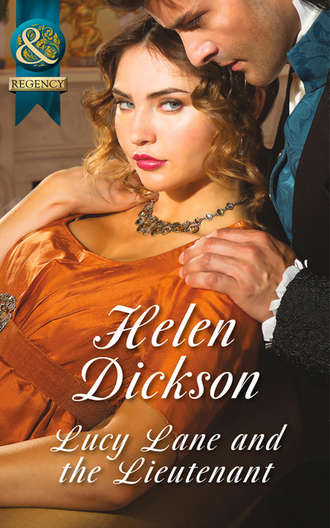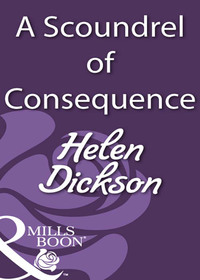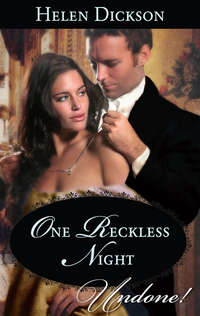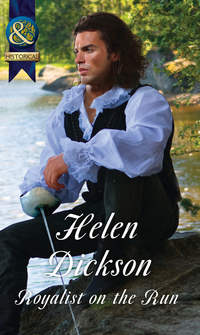
Полная версия
Lucy Lane and the Lieutenant
After that, when anyone asked about her, he would answer dispassionately, his reply devoid of concern—not even his eyes showed interest. Lucy was gone. Since he knew damned well that he had done no wrong, the only remaining conclusion was that she had left him for someone else. Having seen the way other men followed her with their eyes, drooled over her when she appeared on stage, the existence of a lover was the only thing that made any sense.
With this thought in mind, he hadn’t considered trying to contact her again. She became dead to him and he didn’t give a damn where she went or whose bed she occupied. She had a highly refined sense of survival and she’d land on her feet wherever she went.
But seeing her tonight he had wanted her all over again. The truth was that he missed her. He missed her far more than he could ever have imagined. Numerous times he had picked up his pen to write to her, but his pride had refused to let him put pen to paper. She was the one who had ended it. It was Lucy who must make contact with him.
But then his hand had been forced by duty and now here he was.
His father had been a bishop, his mother first cousin to Lord Wilmslow. Never having married, Lord Wilmslow had died without issue. Nathan was his heir. It was Lord Wilmslow’s influence that had taken Nathan from Oxford University to the Foreign Office where his command of languages, his sound mind, reliable judgement and quick intelligence had ensured a swift rise. Introduced to men of note, he had been given responsibilities and entrusted with confidences. His reputation had led to his first major appointment when war had broken out with France.
British spies had proved effective in following Bonaparte’s activities, and with the information they gleaned, more than ever the British Government was convinced the French leader was determined to invade England. As an important member of the British intelligence system Nathan had been sent to France and then to Spain to work against Bonaparte, an appointment which was as lonely as it was secret.
But the savage war was done for him when a French sword had pierced his side. When his wound had healed, and at thirty-two years old, he had decided it was time for him to think of marriage and raising a family. When he had been summoned and given this assignment, he knew he had to go back.
It was an assignment that drew his full attention since it affected him personally and would enable him to avenge the death of a young soldier, a brave soldier called Harry Connors, who had been the son of a close friend, a soldier whose death he himself had inadvertently caused. He would never be free of the guilt of what he had done until what he considered to be an act of murder had been avenged.
Another reason why this mission was so important to him was because it involved rescuing the wife and young son of his closest friend, who had been killed in battle. He would not be able to live with himself if he did not try his utmost to rescue them from the murderous rabble holding them captive.
But he could not do it alone. After spending weeks in captivity it was likely the woman and child would be in no fit state for a long trek down from the mountains, so it would be better if his companion was a woman. He knew many women, but not one of them was suitable to carry out such a mission.
From a strictly logical standpoint he had chosen Lucy Lane to help him—the last woman on earth who would want to.
She would be perfect for what he had in mind. Of course he had expected her to react angrily to his appearance and his offer, but how long that anger would last he didn’t know. She had already been angry with him for four years. She would fight him, but no matter. Before approaching her he had been quietly watching her for some time. Making discreet enquiries into her circumstances and discovering she was in financial straits, he realised the money she would be paid for accompanying him on his mission might tempt her.
Also her relationship with Jack Lambert bothered him. Lambert had a manly quality that endeared him to women. He was also a notorious rake with a well-deserved reputation for profligacy. He had heard the rumour that Lambert found the beautiful actress a challenge and that he fully intended luring her into his bed by offering her marriage—not that he had any intention of carrying out his promise. Lambert wasn’t the only one to be attracted by her, Nathan reminded himself, for Lucy was a beautiful woman, and there was the allure of her profession, as well. But Lambert was a no-good wastrel who, from sheer perversity and extreme boredom, had unscrupulously flayed the reputations of dozens of pretentiously proud females, but he had never once attempted to rebuild one of those demolished reputations.
Standing in the shadows outside the theatre, Nathan had pressed his lips together at the unexpected stab of jealousy that tore through him as he watched Lambert kiss Lucy’s lips. He had told himself it didn’t matter if she did return his kiss. He couldn’t have cared less. But deep down he would hate to see Lucy become just another of Lambert’s victims and become an object of ridicule. But then, Lucy was not without guile. She was no naïve innocent, but desperate to solve her financial issues, the lure of Lambert’s wealth might prove too strong a temptation for her to resist and she might admit him to her bed, hoping it would end in marriage.
Whatever the truth of the matter, that had been the moment Nathan had determined to recruit her to serve his purpose.
There was no softness in his gaze as he strode on, only the calculating gleam of a man on a mission. Despite what was between them he knew that he had not been mistaken in choosing Lucy Lane. She would be perfect for what he had in mind.
* * *
The next afternoon Lucy received a note from Nathan, asking if she had given the matter he had discussed with her some thought.
She’d already made up her mind that what he asked of her was preposterous. There was a time when she would have gone to the ends of the earth for him, but that was in the past. She had given him her heart, her devotion and her love—in short, she had given him what was the sum and substance of Lucy Lane. She had loved no man before him and no man since and he had betrayed her with her closest friend, Katherine Tindall.
Looking back over the days before she had ended it, she realised it had been in their faces, in their eyes and the way their bodies met, familiar with one another. Katherine, a widow whose military husband had been killed in India, had acted strangely. In her naïvety Lucy had asked her if all was well with her. She recalled Katherine’s evasive disinclination to tell her why she was acting secretive, the way she had laughed nervously and accused her of imagining things—and all the while...
And Nathan! He, too, had seemed withdrawn, secretive, his thoughts elsewhere. She had asked him what was wrong—with him, with her, with them. She didn’t know. She couldn’t tell. He had told her nothing was amiss, that it was in her imagination. His face, though, had belied his words. Normally they had no secrets from one another and she had known he was hiding something from her.
And then there had been Mrs West, an older woman, a widow, an actress herself, who had been among their circle of friends. She had taken Lucy aside and told her in low, conspiratorial tones of the rumour that was being whispered about town of Katherine’s closeness to Nathan, that they were often seen together having a tête-à-tête. You’re an intelligent girl, she had said. Surely you must have noticed. Lucy hadn’t and she wildly shook her head to deny it, telling Mrs West with bitterness and pain that she didn’t believe it and hating her for what she had said, that they were nothing but malicious lies. But could this be what was behind their odd behaviour, the changes she had noted in both Katherine and Nathan?
A shiver passed through Lucy as she remembered the moment she had seen for herself and could no longer ignore the horrible truth. The scene she had witnessed just days before their wedding had become frozen in her memory. Early one morning she had gone to call on Katherine, who was to have been her matron of honour, to discuss some minor details concerning the day itself.
About to get out of her carriage, she had paused on seeing the door open, shrinking against the squabs when she saw Nathan come out of the house accompanied by Katherine. After embracing her and placing what had looked to her like a lover’s kiss on her cheek, he had walked away. That was when something inside her, no more than a tiny crack, began to form at the foundations of her belief that she and Nathan would be together always.
Every nerve in her body had stiffened against the onslaught of her bitter anger and the pain of betrayal. She had wanted to hurt him badly, make them both pay. She wept in the dark of the night with the pain until she thought she would die of it. Her spirit was battered and desolate, but when she rose from her bed and put pen to paper, telling Nathan that she had changed her mind, that it would be folly for them to wed, that she had been mistaken in her feelings for him and that he was not the man she wanted for her husband, she was clear-eyed and icy calm.
When he had called on her she adamantly refused to see him and did not leave the house. Nor did she discuss the matter with anyone, not even her aunt Dora. After two weeks his visits ceased and she later learned that he had been posted to France. Feeling a desperate need to get out of London and to leave the memories and heartache behind, she had joined a travelling theatre company.
Now, to confuse her totally, he had swept back into her life, just as handsome, just as intriguing, and with him he had brought an offer of money as well as adventure. He knew too well how difficult it would be for her to refuse such an alluring combination, but she must.
Refusing to let him intimidate her, angrily she tore up the note and threw it into the fire.
* * *
Another note was delivered the next day, and when she failed to respond he turned up at the house.
‘I’ve given you my decision,’ she told him irately when Polly showed him into the parlour, where she was poring over the housekeeping books, wishing there was more money in the pot to pay the outstanding bills and to spend on a few luxuries. ‘I want no part of it. Now, please don’t pressure me anymore. There have been times in the last four years when I have wondered if I did right in breaking off our engagement. Now I am very glad I did. I was right to do so, for now I see you for what you are. You are a monster. You keep nibbling away at my reserves like a mouse. You will bide your time until the moment is ripe—until I have nowhere else to turn—and then you will pounce.’
Keeping a firm check on his expression, Nathan stepped closer with a respectful glance. ‘I apologise if I expressed myself badly the other day. Do you need more time to think about it?’ Her angry reaction to his proposal had come as no surprise. He was aware of her stubborn independence and he would have to soothe her ire as much as possible. It was up to him to convince her to work for him.
‘No. I’ve given you my decision. There’s too much at stake. I am happy as I am. I enjoy my work, work that is comfortable and familiar to me, work in which I take great pride. I will not leave all this and enter a very different world. I also have my aunt to take care of. Should anything happen to me, who would look after her? She isn’t strong. Who would pay her bills?’
‘That would be taken care of.’
She looked at him incredulously. ‘By whom? You?’
‘Yes.’
With an exasperated sigh she looked at him. ‘Are you simply unable to comprehend the word no?’
‘I do have a difficulty with that particular word,’ he conceded, smiling crookedly.
‘I’m not surprised,’ she answered. ‘You probably do not hear it very often.’
‘Rarely,’ he agreed. ‘I am arrogant, I dare say,’ he went on, ‘and everything else of which you accused me of being. I admit it freely. However, I ask that you overlook my flaws and agree to go with me to Portugal.’
Lucy held her breath. It was a physical effort not to close the gap between them, to reach out for this man whose body had once been as familiar to her as her own. Her hands clenched into fists at her sides, her nails digging into the palms of her hands as she fought against an attraction so strong it almost overwhelmed her.
When she failed to answer he took a step towards her, holding out his hand as if in silent appeal. ‘Lucy—’
She stepped back, away from him. ‘When it comes to persistence you have it in abundance. But my answer is still no. Now, please go. Nothing can be gained from this.’ He flinched. Her lips tightened. She must not show weakness now.
She kept her gaze fixed on something beyond him. Her body was rigid, her control as brittle as glass. If he reached out and touched her now those fragile defences would shatter. She prayed that he did not realise the power he still held over her. The memory of his kiss was enough to shatter her defences into a thousand pieces.
Nathan stared at her, his eyes hard and angry. After what seemed like an age he seemed to come to a decision. He went to the door where he turned and looked back at her. ‘I’m not giving up, Lucy. One way or another I will persuade you. Believe me, this is important. You have no idea how important. Think about it.’ He left quietly.
* * *
A bitter taste of disappointment and anger filled Nathan’s mouth as he walked away from Lucy’s house. He was a worried man. It would soon be time for him to leave for Portugal.
When Lucy had ended their courtship he had thought never to see her again. She’d finished it and he still didn’t know why, but he’d had time to wonder. It wasn’t until the eve of his departure for France, when he’d run into Katherine and she told him that Lucy wouldn’t see her either, that his mind had begun to backtrack.
He wondered if Lucy had seen something she ought not to see. Might she have stumbled across some stray detail in his closeness at that time to Katherine and formed her own conclusions? But that was impossible. He knew he had grown very comfortable with Katherine, which his friend Lord James Newbold—the second son of the Duke of Londesborough—who was enamoured of the lovely fair-haired young widow, had warned him to be wary of. But he was too experienced to have done something careless.
But he thought it strange that Lucy had ended her friendship with Katherine and for this reason he would have to keep the identity of the woman he had to rescue secret until Lucy had agreed to work with him and they had arrived in Portugal.
His memories of their time together had never left him. A softness warmed his eyes as he remembered the long summer afternoons they had spent together and the nights, long and filled with loving. He remembered the mornings when they had wakened side by side and she had smiled at him, glad to have him with her. She had been soft in his arms, her lips eager for his kisses, her eyes slumberous and warm with her love.
Cursing softly, he quickened his step, unwilling to contemplate the idea of failure. He had to persuade her. Too much hung in the balance. He had a job to do. Lucy’s obstinacy could not be allowed to get in the way.
* * *
The first of Lucy’s creditors to present an unpaid bill arrived at her door two days later. He was soon followed by another.
‘I’m sorry, Miss Lane,’ the man collecting for the milliner said, his voice neither sympathetic nor accusatory, ‘but Mr Matthews insists that the bill has to be paid. He’s been lenient, giving you more time, but that time’s up. He needs to be paid now.’
Lucy stared at him numbly as an embarrassed redness suffused her face. She managed to scrape up enough money to pay the bill outright, but when the chemist came asking her to settle up for Aunt Dora’s medicines, she could only pay half.
And so it went on. The house came under daily siege as angry tradesmen and women clamoured for payment of their accounts. They gathered like noisy vultures, ready to pick what remained of her assets down to the barest bones. Lucy felt herself plummeting to near despair. To make matters worse, rehearsals for The Merchant of Venice had begun and her financial worries were getting in the way. She had read and memorised the script and would be word perfect on the opening night. Unfortunately, on several occasions she was late at the theatre, which did not go down at all well with Mr Portas. He commented on her tardiness and told her in no uncertain terms that he would not stand for it.
For want of money to meet her obligations, Lucy had to do something. Her pride forbade her to turn to Jack for help. There was only one thing for it. She would have to ask Mr Portas for an advance. The production was due to open one month hence and, as far as Lucy was concerned, she hoped it would run and run.
If Mr Portas refused to give her an advance on her future earnings, she would have no choice but to move out of her rented house and go and live with Aunt Dora. But even then she would need money to continue living.
* * *
The next afternoon she left the house and headed towards Covent Garden. It was a wonderful neighbourhood with a magical, carefree air and on any other day she would breathe deeply the better to absorb the smells, the sights and sounds as she entered the market. It was a noisy, crowded place with an aura of decadence, but Lucy loved it. The market was the very heart of Covent Garden, which, along with its mellow buildings, the piazza and arcades and the theatres, gave it such flavour and vitality.
But today she had too much on her mind to appreciate any of this as she walked quickly through the labyrinth of cobbled streets towards the Portas Theatre. Having grown up surrounded by people who were the theatre’s lifeblood, it had always been an enchanted place for Lucy. Whenever she entered the foyer of the Portas Theatre, with its enormous gilt mirrors adorning the walls, along with posters advertising whatever was playing at the time, she always felt as if she had been transported into another world. Golden cherubs were set into the vast ceiling and huge scarlet curtains hid the stage and matched the material on the seats.
But today as she entered by the stage door at the back of the theatre, she saw none of this. The interior was dimly lit with coils of rope on the floor, discarded scenery and props littered about and racks of old costumes dusty with age. Stagehands hurried about their business, preparing for the evening performance. Some greeted her cheerfully and others got on with their work. She stopped a chap rushing past her carrying a Greek urn to ask where she could find Mr Portas.
‘On the stage, luv. But be warned—he’s in a foul temper today. I’d come back tomorrow if I were you when he’s calmed down.’
Lucy watched him hurry away, stepping back to avoid a man carrying a potted palm towards the stage. Mr Portas wasn’t on the stage and she eventually tracked him down in the corridor outside one of the dressing rooms. With his hair tumbling over his forehead and wearing black breeches and a white shirt with sleeves rolled up over his elbows, he was giving a man with a late delivery of theatrical merchandise a dressing down. After seeing him on his way, he turned to Lucy, his eyes flashing dangerously.
‘Miss Lane! What are you doing here? Still, I’m glad you are. You’ve saved me the trouble of sending for you. I have something I must tell you.’ He glanced at her sharply. ‘Is there a problem?’ he asked impatiently.
‘Yes—I—I find myself in difficult circumstances.’
‘You do?’ The eyes he turned on her were piercing. ‘How difficult?’
‘In the light of my new position I—I wondered if you could see your way to letting me have an advance on my future earnings. I—I wouldn’t ask, but—I am quite desperate.’
He stepped back, his expression irate. ‘No, Miss Lane, I think not. In fact, the reason I am glad you came is so that I can tell you I have hired someone else to replace you.’
With a sinking heart, Lucy stared at him, unable to believe he could do this. She could feel two spots of colour burning on her cheeks. ‘But—the part was mine. You said I was perfect to play Portia.’
‘And so you are—I mean you were. I have always admired your skill in the past, but I’m sorry, Miss Lane, I’ve changed my mind. You are always late. I cannot spare the time to wait on your convenience. I have a theatre to run, a play to get out and yet you persist on being late, which makes me think the role is too much for you.’
‘I am sorry, Mr Portas, truly. I’ve had other things on my mind of late—’
‘Whatever they are they do not concern me,’ he retorted, seemingly unmoved by her plight. ‘My priority is the production. But don’t be too downhearted. You’ll have other offers from other managers. You got good reviews from your last performance. You certainly don’t need me.’
‘No, I’m sure I don’t,’ she said, aware that others had stopped to listen. ‘I got along quite nicely for a number of years without you.’
‘There you are then,’ he said, wiping his hands on his trousers and looking about him in an agitated way. ‘I wish you luck. Now I must get on. Things to do.’
‘Yes, of course. I won’t keep you.’ She halted and half turned. ‘Do you mind telling me who is to play Portia?’
‘Coral Gibbons. She is ideal for the part. I should have seen it sooner.’
She could only stare at him, all her dreams of the future suddenly dissolving around her. At length, she said, ‘Yes, yes, she is. I see. Thank you for your time, Mr Portas. And now if you will excuse me, I am needed elsewhere.’
Lucy had to be alone. She felt suddenly numb with misery, disappointment and a growing anger. She had not realised until then how very much she had depended on playing Portia. If her replacement had been an inconsequential supporting player going on thirty-five and losing her looks, she wouldn’t be so angry.
But Coral! Her closest friend! She was lovely, a perfect replacement, and Lucy had no doubt she would be a resounding success.
With the witnesses to her downfall slinking into the shadows, Lucy swept towards the exit with her head high, only to come face to face with Coral as she was about to leave by the stage door.
For one vivid instant the air between them shivered with tense friction.
‘Lucy—oh, Lucy...’
‘What have you done? Can you not see...?’
Lucy’s voice was lifeless. It was as though Coral had taken something precious from her, some secret treasure she had hoarded and which was now revealed, something which had given her life and a recognition of her own value.
But if Coral was disconcerted by Lucy’s abrupt manner, she hid it quickly under a mask of sympathy. ‘Lucy!’ she murmured, taking her friend’s hand and drawing her away from the curious gaze of a stagehand. ‘You have seen Mr Portas.’
‘Yes,’ Lucy replied, trying without success to hide her resentment for the full, rounded curves, the lovely blond hair falling about the small, fascinating face. ‘Just now. He—he told me that the part of Portia is no longer mine.’
‘I’m sorry, love. No one could have been more surprised than me when he offered me the part. I was tempted to tell him where to go—but I couldn’t, not really. Please don’t be angry with me, Lucy.’
Lucy sighed, shaking her head dejectedly. ‘I’m not angry with you, Coral. Getting angry accomplishes nothing. But I can’t pretend that I’m not disappointed.’
Coral shook her head as though in dismay at her own gullibility. ‘I can’t blame you. I would be livid had it happened to me.’
Coral said the words quietly, sincerely, and Lucy felt a tugging inside and knew she mustn’t give in to her disappointment and simmering anger against the unfairness of it all. She smiled. There was a new radiance about her friend, a glow to her creamy complexion and a sparkle in her vivid hazel eyes. Her abundant blond hair tumbling about her shoulders and glistening with gold highlights, she looked absolutely stunning in a gown of pale blue taffeta with narrow silver stripes. Never had Lucy envied another woman as much as she did Coral at that moment. But she was not bitter that her friend was to play Portia. If the part had to go to someone else, Lucy was glad it was her.











